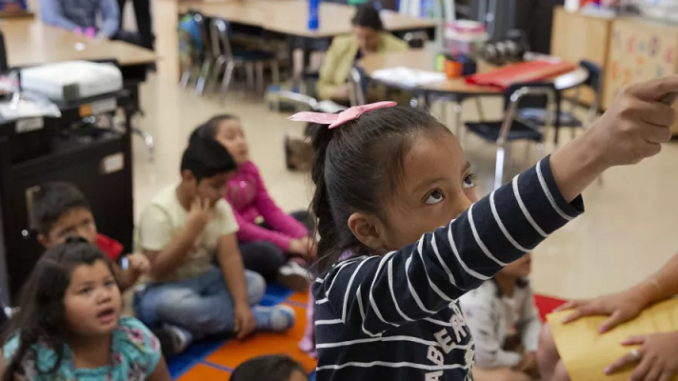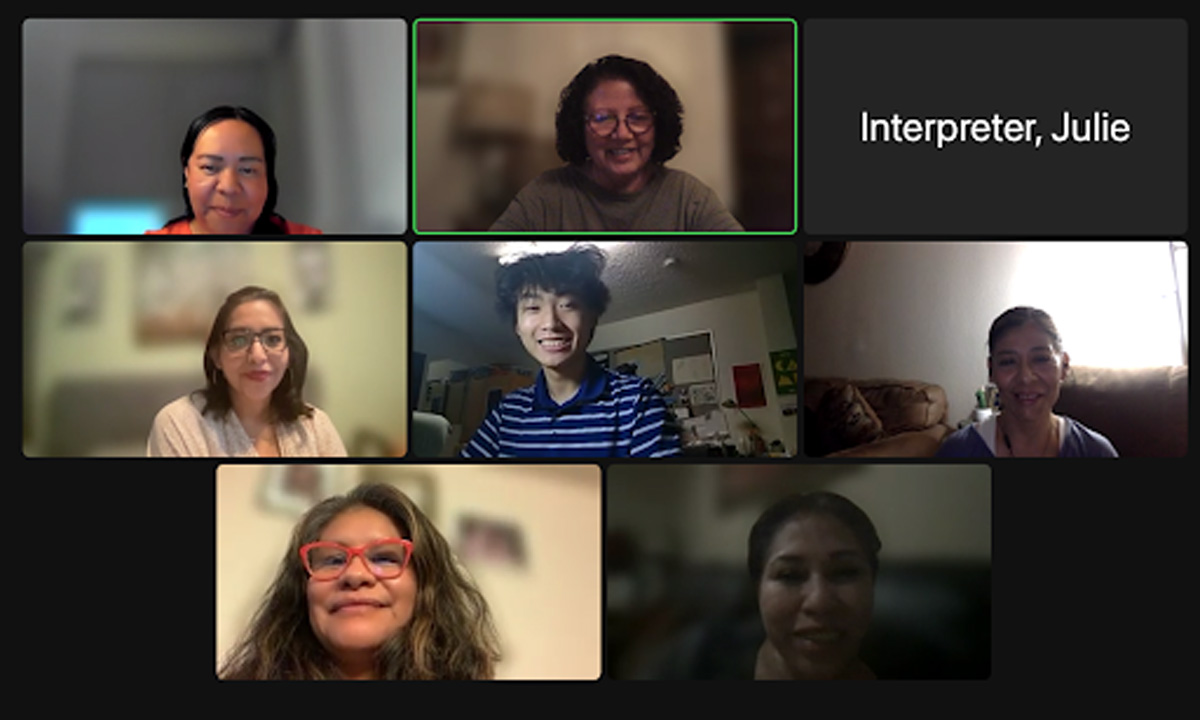
What a two-hour conversation with advocates in the city revealed about parents’ views of LAUSD and the quality of their childrens’ schools.
By Nicholas Dinh, The 74.
This story was produced by The 74, a non-profit, independent news organization focused on education in America.
Los Angeles Unified Superintendent Alberto Carvalho’s arrival more than a year ago raised hopes for parents across the district, particularly Latino parents, hoping for more of a role in school decision making.
Latino students make up nearly three-quarters of the LAUSD student population.
But Carvalho’s 100-day plan, which promised to narrow academic achievement gaps and increase community engagement, has fallen short for some Latino parents.
Five members of Parent Warriors, an advocacy group that is part of Families In Schools, spoke about unprecedented challenges, their eagerness for parent engagement, and Carvalho’s future — which they hope prioritizes a seat at the table for them.
Parent Warriors members:
- Lissette Duarte, parent of a graduate and current LAUSD student.
- Raquel Toscano, parent of a graduate and current student at an LAUSD school.
- Sonia Gonzalez, parent of two students attending a charter school in Los Angeles
- Mireya Pacheco, parent of a college student and two students attending a charter school in Los Angeles.
- Monica Martinez, parent of five graduate and current LAUSD students. Her grandchildren also attend LAUSD schools.
- Sandy Mendoza, Director of Community Engagement and Advocacy for United Way of Greater Los Angeles
This interview has been edited for length and clarity.

As a parent, do you feel superintendent Carvalho is promoting parent engagement across the district?
Duarte: I had really high hopes for him because he was a teacher and then an assistant principal and then a superintendent that was able to turn around Miami-Dade schools during a recession. And so I was like, wow, this is going to be a really great superintendent for us. But I don’t see that we’ve addressed the widening gaps in proficiency.
Toscano: He started with the 100-day plan, but I feel that it’s too much on his plate…. I feel that the communication is still not as clear as I would want it to be…As he said, I feel we can come together and work together. But I still think that there’s a gap between all of us. I still feel that even being part of these committees…there’s still no connection.
Gonzalez: So being a charter school parent, I have yet to see any outreach to charter school parents…what I know about the superintendent has been what comes through news…and things I’ve seen on the internet.
Martinez: I think it’s a lack of communication because they talk about projects and bring them to the Board of Education but we’re not seeing it in the schools.
Pacheco: When Mr. Carvalho came to the community, honestly, I didn’t see an invitation to speak to him closely…it was disappointing…I can tell you that I was expecting more. There’s a lack of communication. There’s a lot to be done.
What has been the most challenging issue you have faced with your child’s education this past year or this school year?
Pacheco: There have been threats using Instagram threats for certain schools. The threat said we’re going to attack and then the school said, no, it was so-and-so. It was a child from the school making a joke…It’s very concerning… for them to not feel safe in the schools.
Toscano: I feel that we’re failing them. There’s lots we can do but if Carvalho would take a minute to listen to all of us, we all have a story… and it’s just frustrating…There are lots of voices, but we haven’t been heard.
Duarte: We have a critical issue with the achievement gap and loss of learning. There are around 1100 schools in LAUSD. We’re the second-largest school district in the country. We have nearly 9000 homeless students and about 84% of the students are living below the poverty level.
How did the three-day strike by school workers affect your family? How do you feel about these strikes, like the teachers’ one a couple of years ago happening during the school year, and what preparations should be implemented?
Gonzalez: …many parents…are just really tired of having the strike used because ultimately nobody’s there to protect the children. Nobody’s there to take care of the missed days.
Martinez: In one way or another, they’re already behind academically… And I don’t want to say anything wrong about teachers. I’m so glad they received their increase. But our children…where is that balance?
Toscano: My question was, do we really need it? Obviously, I’m for it. They need to get paid. They have families to support… There has to be a different way of negotiating. I think we parents need to be at this negotiation table.
In terms of college and career readiness, how would you rate LAUSD on its ability to prepare students for college and its ability to help students navigate through the college/career process?
Duarte: They’re not properly preparing students and there isn’t enough support… because …especially with very large campuses, there’s probably only one college counselor. There’s no way to meet the need of getting the FAFSA done or linking them to those services and supports in a timely manner.
Martinez: They don’t have enough staff. The parents do not all have the opportunity to learn to be able to guide their children…And when they graduate, basically go to college blind.
Gonzalez: There are a lot of good organizations out there that can be brought into the LAUSD school district to help them. The reality is the budgets can’t afford it.
I’d like to give you this time to speak about the overall rate you give to superintendent Carvalho’s work in his first year in office and also to speak about the issue you care about the most.
Duarte: For me, I’d like to see him focus on a kid first agenda like Students First and allow for collaboration.
Pacheco: What I’d like to add is…Mr. Carvalho, please don’t forget that our children come first… Do not forget that they’re our priority. We will get old and they will continue living in this world.
This article is part of a collaboration between The 74 and the USC Annenberg School for Communication and Journalism.
.
